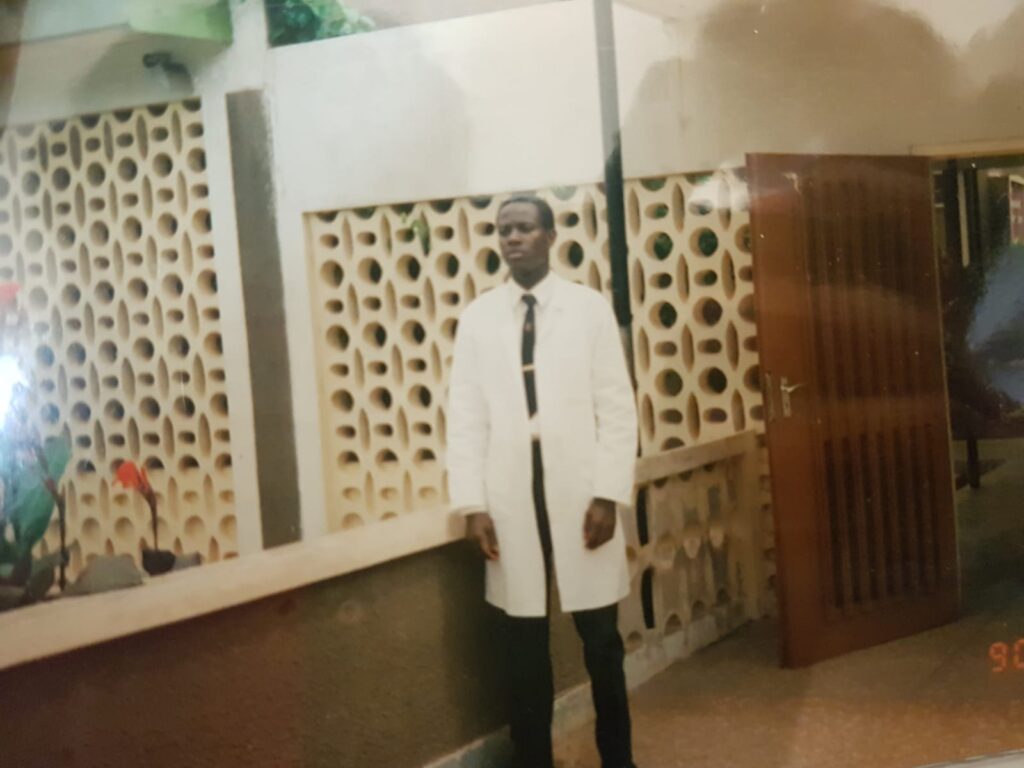We are continuing the blog series with content from biblical scholar Scot McKnight. In this blog series, we’ll be sharing Scot’s insights and wisdom on the book of Philippians.
Each week for the next 12 weeks Bible Gateway will publish a chapter from the Bible study book, taking you through the full text of McKnight’s study on Philippians. For this week, here is the first study, A Common Life of Gratitude for Generosity | Philippians 4:10-20
Special Note to the Reader: We open this study guide to Philippians by starting with chapter 4:10–20 that sets the context before us. At the heart of Paul’s letter is that he and they share a common life, and this passage puts into words major elements of that common life. Not the least of which is generosity with resources, which created a special bond with the Philippians and Paul and his co-workers. From this point on in the letter, every time we see the word “common life” or “fellowship” we need to have in mind the tangible, generous gifts at work in such a fellowship of believers.
10) – I rejoiced greatly in the Lord that at last you renewed your concern for me. Indeed, you were concerned, but you had no opportunity to show it. 11) I am not saying this because I am in need, for I have learned to be content whatever the circumstances. 12 I know what it is to be in need, and I know what it is to have plenty. I have learned the secret of being content in any and every situation, whether well fed or hungry, whether living in plenty or in want. 13) I can do all this through him who gives me strength.
14) Yet it was good of you to share in my troubles. 15) Moreover, as you Philippians know, in the early days of your acquaintance with the gospel, when I set out from Macedonia, not one church shared with me in the matter of giving and receiving, except you only; 16) for even when I was in Thessalonica, you sent me aid more than once when I was in need. 17) Not that I desire your gifts; what I desire is that more be credited to your account. 18) I have received full payment and have more than enough. I am amply supplied, now that I have received from Epaphroditus the gifts you sent. They are a fragrant offering, an acceptable sacrifice, pleasing to God. 19) And my God will meet all your needs according to the riches of his glory in Christ Jesus.
20) To our God and Father be glory for ever and ever. Amen.
The final passage in Philippians opens the front door to the entire letter because its theme shapes so much of this letter. It details Paul both being contented in all situations and thanking the Philippians for financially supporting him. A key word here gets translated with various English words but behind them all are koinos, which means “common,” and koinonia, “common life” or “fellowship.” But this common life is more than living a similar life. The terms indicate participating in one another’s life and livelihood. It means praying for one another and supporting one another materially and participating with one another in a common mission.
Here’s how Paul’s understanding of common life of gratitude and generosity is constructed. First, God is a God of “grace,” which is a similar term to “gift.” Second, Jesus impoverished Himself by becoming Human and dying for our sins. This is the supreme act of God’s Giving or God’s Grace. Third, Jesus’ intent in becoming poor was so that we could become rich through His Grace and Giving. Fourth, we receive His Grace and so we become rich in Blessings so that, fifth, we can reciprocate in giving to others. By this we participate in the cycle of God’s Generosity and Grace, the common life mentioned in this letter so often. Gift giving in the 1st Century created a social bond between giver and receiver, obligated the receiver to reciprocate in exchange, either by thanksgiving or more likely by a return gift, and this sealed their relationship. Our passage jumps right into this theory of generosity, not by explaining it but by doing it. Grace transforms humans into agents of Grace. That’s what happens with Grace unleashed.
But Paul seems to have had a common life policy about financial support that worked like this: he received no financial support as he was planting a church and when he resided in that church plant’s city. Instead, while there, he worked a manual job to support himself and his co- workers. Once a church was on its own feet and probably in good order (unlike Corinth, from whom he seemed not to take funds) and Paul was on the road again, he would accept donations, that is, he and they could participate in a common life of generous giving and receiving. The Philippians would then have been mature enough to support him, and he welcomed their gifts. But this common life had some unusual twists and turns as it learned to express God’s own Gracious gift-Giving. The best kind of common life involves gratitude, contentment, and affirmations.
Gratitude Extended
The Philippians expressed their generosity to Paul in gift- giving of some sort, most likely in providing funds for his well-being and mission. This is seen in “you renewed your concern for me” (4:10) but at that time there was no opportunity for them to give. Instead, “it was good of you to share in my troubles” (4:14) but then he can say a gift has arrived through one of his best co-workers: “I have received full payment and have more than enough. I am amply supplied, now that I have received from Epaphroditus the gifts you sent” (4:18). The desire they had to help eventually led to a gift.
As believers who experience God’s Grace reciprocate in thanksgiving to God, so Paul expresses his gratitude in the above words. Noticeably he does not say “thanks” as one might expect. It’s difficult to know why the word does not appear and perhaps too much has been made of its absence. It may be that Paul does not want to be drawn into a dependent relationship with them. Perhaps so, but I suggest Paul’s understanding of Grace and giving may well help us here. Christians know the gifts they receive from God lead to God’s Glory not to their having earned them. But Paul starts with giving the Philippians some glory, which is a kind of thanks. He says, “I desire . . . that more be credited to your account” (4:17). But he doesn’t stop there as he extends that expression of gratitude to God when he says the gifts “are a fragrant offering, an acceptable sacrifice, pleasing to God” (4:18). He turns from them to giving God the glory. For Paul all thanks to others leads to a greater thanks and glory to God.
Christian responses to receiving gifts may well be expressed in a word of thanks to the givers but the ultimate glory belongs to God, not to the human giver. This should not shrink our expressions of thanks. Rather, this theory of generosity anchors all good gifts in God’s good Graces. Many of our churches and institutions have walls of honor for those who have given generously. May I recommend that at the bottom and the top of those names we say, “All for God’s glory”?
Contentment Enlarged
Paul has received a gift from the Philippians, but he is at pains–read this aloud and you will feel the tension–to say they are not obligated to him and that he has learned the art of enlarged contentment, and “content” can be translated as “self-sufficient.” Read 4:11–13 slowly. He’s not “in need, for I have learned to be content,” because he’s learned to live “in plenty or in want.” God is the one who Gives him the strength to endure the “want” as he knows the good-ness of generosity in times of “plenty.” A few verses later he states this even more directly: “Not that I desire your gifts” (4:17). The word “desire” could be translated “seek after” or “push for.”
There is no demand in Paul, and that means there is no sense of obligation or duty for the Philippians to respond to the gift of Gospel of Grace preached to them by Paul. This counters one of the mostly unwritten rules of ancient gift giving. Receivers were to reciprocate as an obligation according to their own resources. Paul saws the legs off the table of obligation, and they discover they are sitting across from one another with nothing between them. They sit together as siblings who desire to be generous as an expression of gratitude to one another and to God. If they are unable at that time to provide for Paul, Paul’s fine. If they are able, Paul’s fine with that too.
We may need to work on the discipline of contentment more. That is, we (or I) live in an affluent Western world where we have all we need and far more. I can get irritated when my computer responds slower than I think it ought where Paul was learning to live without food and shelter and safety. Contentment is a Christian virtue that roots itself in God’s providential Care for us. Lenten disciplines remind us of our affluence as does sacrificial giving. Some of us serve the homeless or live among the poor and these too can remind us of our need for contentment.
Affirmations Expressed
The Philippians were early givers as we sometimes say in church talk after an appeal for funds. Way back “in the early days . . . not one church shared with me in the matter of giving and receiving,” and we should notice his theory of generosity at work in “giving and receiving.” Not one church “except you only” (4:15). They were then the early givers, and this surely gave Paul a sense of honor and pride in them. (Which they knew.) He is affirming them, and everyone in the church will hear this letter read aloud.
Public affirmations of givers can get dicey. Jesus had very strong Words about giving in order to be seen (Matthew 6:1–4), and some will want to give in order to get public glory. True enough, but there is a Christian approach to publicly affirming givers. Paul’s theory helps us. Let us learn to express thanksgiving to the wealthy givers among us through Paul’s theory: God unleashed a kind of Grace that transforms us into agents of grace, so our giving owes its energies in God’s Grace, and we are but agents who turn any gratitude into God’s Glory, not ours.
Not only does he affirm them, he also has a “backatcha” promise, something he has himself learned over the years in Gospel work: “My God will meet all your needs according to the riches of his glory in Christ Jesus” (4:19). Again, this verse is a one-verse summary of 2 Corinthians 8–9. His theory is at work: God is a God of Grace, God gives Grace in Christ Jesus, we receive Grace, we give thanks and glory to God, and we become agents of generosity because of that Grace at work in us.
When he ties the knot on this section, he takes us to the goal of all his theory of generosity: God is to rceive all the glory (4:20).
To be cont’d next week






